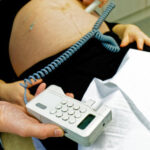Are you wondering, “How long do I wait to take a pregnancy test?” Timing is crucial when it comes to determining the accuracy of a pregnancy test. Knowing when and how to take a pregnancy test can make all the difference in getting reliable results. In this article, we will explore the significance of timing in taking a pregnancy test, from early signs of pregnancy to the best time for testing.
One of the first steps in confirming a possible pregnancy is being aware of the early signs and symptoms. From missed periods to nausea and breast tenderness, recognizing these indicators can prompt you to consider taking a pregnancy test. However, knowing when to take that test requires understanding various factors that can affect its reliability.
Factors such as the type of pregnancy test used, your menstrual cycle regularity, and any fertility treatments undergone can influence when you should take a pregnancy test. It’s essential to consider these variables before proceeding with testing. Additionally, understanding how different types of tests work and their sensitivity levels can also impact the accuracy of your results.
Early Signs of Pregnancy
When it comes to early signs of pregnancy, it’s important to pay attention to your body and be aware of any changes that may occur. While these symptoms can vary from woman to woman, some common signs include missed periods, nausea or morning sickness, tender or swollen breasts, fatigue, and frequent urination. These signs typically start appearing within the first few weeks after conception.
It’s essential to remember that not all women will experience the same symptoms or with the same intensity. Some women may experience all the classic signs of pregnancy while others may only notice a few subtle changes. If you suspect you might be pregnant but are unsure about taking a test just yet, it’s crucial to keep track of any symptoms you are experiencing.
If you’re wondering how long do i wait to take a pregnancy test, it is generally recommended to wait at least one week after your missed period for more accurate results. Taking a pregnancy test too early can lead to false negatives due to low levels of hCG (human chorionic gonadotropin) in your urine.
However, some sensitive tests claim to detect pregnancy as early as a few days before your expected period date. It’s important to read the instructions on the test carefully and follow them for the most reliable results.
Factors to Consider Before Taking a Pregnancy Test
Physical Signs and Symptoms
Before taking a pregnancy test, it’s essential to pay attention to any physical signs and symptoms your body may be exhibiting. Some early signs of pregnancy include missed periods, breast tenderness, nausea, fatigue, and frequent urination. Although these symptoms can also be attributed to other factors like stress or illness, experiencing a combination of them could indicate a possible pregnancy.
Timing of Intercourse
Another crucial factor to consider before taking a pregnancy test is the timing of intercourse. It’s important to remember that sperm can live inside the female reproductive system for up to five days. Therefore, if you’ve had unprotected sex within this window and are experiencing early pregnancy symptoms, it might be a good time to take a test. Understanding your ovulation cycle can also help determine the likelihood of conception.
Emotional Readiness
Taking a pregnancy test is not just about the physical aspect but also about being emotionally prepared for the results. Whether you are hoping for a positive or negative outcome, it’s important to mentally prepare yourself for any scenario. If you’re uncertain about what the results may bring, consider speaking with a trusted friend or healthcare provider for support and guidance on how to cope with the news.
Different Types of Pregnancy Tests Available
When it comes to deciding which pregnancy test to take, there are a few options to choose from. It’s important to understand the differences between these tests so you can make an informed decision. Here is a breakdown of the different types of pregnancy tests available:
- Urine Tests: These are the most common type of pregnancy tests and can be done at home with over-the-counter kits. They detect the presence of hCG (human chorionic gonadotropin) in your urine, which is a hormone produced during pregnancy.
- Blood Tests: Blood tests can be done at a doctor’s office or clinic and are able to detect pregnancy earlier than urine tests. There are two types of blood tests: quantitative hCG tests, which measure the exact amount of hCG in your blood, and qualitative hCG tests, which simply confirm if hCG is present or not.
- Ultrasound Tests: Ultrasounds are typically done at a doctor’s office and use sound waves to create an image of the inside of your uterus. While ultrasounds do not detect pregnancy itself, they can confirm if a fertilized egg has implanted in the uterus.
Knowing the differences between these types of pregnancy tests can help you decide which one is right for you based on your specific needs and preferences. It’s also important to keep in mind that each test has its own level of accuracy and sensitivity, so choosing the right test could impact how early you are able to receive accurate results.
If you’re wondering “how long do I wait to take a pregnancy test?” it’s crucial to consider these different options and understand how they work. By being knowledgeable about the various types of pregnancy tests available, you can make an informed choice that suits your individual situation.
How Early Can You Take a Pregnancy Test?
When it comes to taking a pregnancy test, timing is crucial. Many women may wonder, “How early can you take a pregnancy test?” It is essential to understand that the timing of taking a pregnancy test can greatly affect its accuracy. If taken too soon, the test may not detect the levels of hCG (human chorionic gonadotropin) hormone in your urine, which indicates pregnancy. Therefore, knowing when the best time to take a pregnancy test is key.
Typically, most over-the-counter pregnancy tests claim to be accurate as early as the first day of a missed period. However, for more reliable results, it is advisable to wait for at least one week after your missed period before taking a pregnancy test. This waiting period allows enough time for hCG levels to build up in your body if you are pregnant, increasing the chances of an accurate result.
Factors such as the sensitivity of the pregnancy test and your menstrual cycle length can also impact how early you can take a pregnancy test. Some early detection tests can detect lower levels of hCG earlier than others.
Additionally, if you have irregular periods or unsure about when your next period is due, it may be challenging to determine how long to wait before taking a pregnancy test. Consulting with your healthcare provider can help provide guidance on when might be the best time for you to take a pregnancy test based on your individual circumstances.
Understanding How Pregnancy Tests Work
Pregnancy tests work by detecting a hormone called human chorionic gonadotropin (hCG) in a woman’s urine or blood. After a fertilized egg attaches to the uterine lining, the placenta forms and starts producing hCG.
This hormone is released into the bloodstream and can be detected in urine as early as 6-12 days after conception. However, the concentration of hCG doubles approximately every 2-3 days in early pregnancy, so waiting longer before taking a test may result in a more accurate result.
When wondering how long to wait to take a pregnancy test, it’s essential to consider factors such as the length of your menstrual cycle. For example, women with regular 28-day cycles are likely to ovulate around day 14.
Therefore, they should wait until at least one week after their missed period to take a test for more reliable results. On the other hand, for those with irregular periods or who are unsure of their ovulation date, it may be beneficial to wait two weeks past potential conception before testing.
Certain medications and medical conditions can also affect the accuracy of pregnancy tests. Fertility treatments containing hCG or certain medications used for weight loss can lead to false-positive results. Similarly, conditions like ovarian cysts or certain types of cancer can produce hCG and potentially cause misleading outcomes on a pregnancy test. It is crucial to consult with a healthcare provider if you have concerns about medication interactions or underlying health issues that could impact test results.
| Time Frame | Recommendation |
|---|---|
| 6-12 days after conception | Possible detection of hCG in urine |
| Regular 28-day cycle | Wait at least one week after missed period for testing |
| Irregular periods/uncertain ovulation date | Wait at least two weeks post-conception before testing |
When Is the Best Time to Take a Pregnancy Test?
Factors Affecting the Timing of a Pregnancy Test
There are several factors to consider when determining the best time to take a pregnancy test. One of the most important factors is the timing of ovulation and conception. Typically, a woman ovulates around 12-14 days before her next period is due.
If you are trying to conceive, tracking your ovulation can give you a better idea of when to take the test. Additionally, the sensitivity of the pregnancy test you choose can also impact when you should take it.
Another factor to consider is your menstrual cycle length. For women with irregular cycles, pinpointing the ideal time for testing can be more challenging. In such cases, it may be recommended to wait longer before testing to avoid false negatives.
When Can You Take an Early Pregnancy Test?
Many pregnancy tests claim to provide accurate results as early as 6-8 days after ovulation or conception. However, it is essential to note that taking a test too early can lead to false negatives. It is advisable to wait until at least the day of your missed period before taking a pregnancy test for optimal accuracy.
Moreover, if you are eager to find out if you are pregnant earlier than that, some highly sensitive tests on the market may be able to detect hCG levels even before your missed period. Keep in mind that testing too soon increases the likelihood of receiving inaccurate results due to low hormone levels in the early stages of pregnancy. Remember, patience is key when it comes to getting reliable results from a pregnancy test.
Tips for Accurate Results and What to Do Next
Taking a pregnancy test can bring on a mix of emotions, whether you are hoping for a positive result or not. To ensure accurate results, it is crucial to follow some tips that can help you navigate this time of uncertainty. Here are some tips to consider before taking a pregnancy test:
- Choose the right time: It is recommended to wait until you have missed your period to take a pregnancy test. Testing too early may give false negative results due to low levels of hCG hormone in your body.
- Read the instructions carefully: Make sure to read and follow the instructions provided with the pregnancy test kit. This includes understanding how long to wait before reading the results and what symbols indicate a positive or negative result.
- Take the test in the morning: Your first-morning urine is usually more concentrated, making it ideal for testing. This can increase the chances of an accurate result.
It can be tempting to take multiple tests in quick succession if you are anxious about the result. However, waiting for at least a week after your missed period before retesting is recommended. This allows more time for hCG levels to increase if you are pregnant.
- Seek support: No matter what the result may be, having someone supportive by your side can make a world of difference. Whether it’s a partner, friend, or healthcare provider, don’t hesitate to reach out for emotional support and guidance.
- Plan your next steps: If the result is positive, it’s important to schedule an appointment with your healthcare provider to confirm and discuss the next steps. If it’s negative and you are trying to conceive, consider talking to your doctor about possible fertility issues or ways to optimize conception.
Conclusion
In conclusion, when it comes to the question “How long do I wait to take a pregnancy test,” timing is crucial. Understanding the early signs of pregnancy and considering factors such as the sensitivity of different types of tests can help you determine when to take a test. It is important to remember that while some tests claim to provide accurate results even before a missed period, waiting until after your missed period can increase the reliability of the results.
Pregnancy tests work by detecting levels of the hormone hCG in urine or blood, which is produced during pregnancy. By knowing how these tests work and when is the best time to take them, individuals can feel more confident in the accuracy of their results. Following tips for taking the test accurately and understanding what steps to take next depending on the outcome can help individuals navigate this uncertain time with more clarity and confidence.
Being prepared for whatever the results may be is essential. Whether it’s confirming a desired pregnancy or preparing emotionally for a negative result, having a plan in place can help alleviate anxiety. Remember that no matter what the outcome may be, there are resources and support available to guide you through your next steps in your journey towards starting or growing your family.
Frequently Asked Questions
How Soon Will a Pregnancy Test Read Positive?
A pregnancy test can read positive as early as 7-10 days after conception, which is usually around the time of a missed period. However, some tests may be sensitive enough to detect hCG hormone levels earlier.
Can I Take a Pregnancy Test After 5 Days?
It’s recommended to wait until a missed period before taking a pregnancy test for accurate results. Testing too early may result in a false negative due to low levels of the pregnancy hormone (hCG) in your system.
What Are the 1 Week Symptoms of Pregnancy?
During the first week of pregnancy, some women may experience symptoms like fatigue, breast tenderness, mood swings, and increased urination frequency. These early signs can vary greatly from woman to woman and are due to hormonal changes in the body.

Welcome to my fertility blog. This is a space where I will be sharing my experiences as I navigate through the world of fertility treatments, as well as provide information and resources about fertility and pregnancy.





